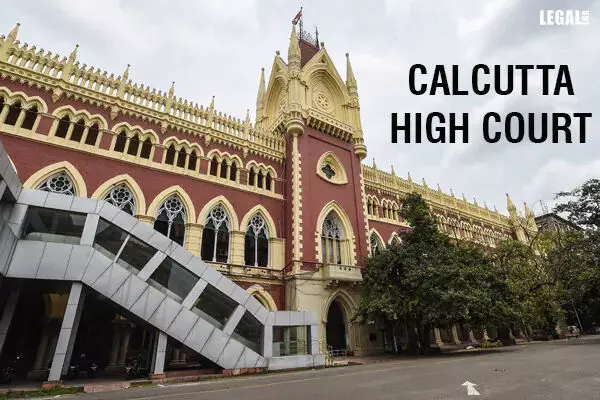- Home
- News
- Articles+
- Aerospace
- AI
- Agriculture
- Alternate Dispute Resolution
- Arbitration & Mediation
- Banking and Finance
- Bankruptcy
- Book Review
- Bribery & Corruption
- Commercial Litigation
- Competition Law
- Conference Reports
- Consumer Products
- Contract
- Corporate Governance
- Corporate Law
- Covid-19
- Cryptocurrency
- Cybersecurity
- Data Protection
- Defence
- Digital Economy
- E-commerce
- Employment Law
- Energy and Natural Resources
- Entertainment and Sports Law
- Environmental Law
- ESG
- FDI
- Food and Beverage
- Gaming
- Health Care
- IBC Diaries
- In Focus
- Inclusion & Diversity
- Insurance Law
- Intellectual Property
- International Law
- IP & Tech Era
- Know the Law
- Labour Laws
- Law & Policy and Regulation
- Litigation
- Litigation Funding
- Manufacturing
- Mergers & Acquisitions
- NFTs
- Privacy
- Private Equity
- Project Finance
- Real Estate
- Risk and Compliance
- Student Corner
- Take On Board
- Tax
- Technology Media and Telecom
- Tributes
- Viewpoint
- Zoom In
- Law Firms
- In-House
- Rankings
- E-Magazine
- Legal Era TV
- Events
- News
- Articles
- Aerospace
- AI
- Agriculture
- Alternate Dispute Resolution
- Arbitration & Mediation
- Banking and Finance
- Bankruptcy
- Book Review
- Bribery & Corruption
- Commercial Litigation
- Competition Law
- Conference Reports
- Consumer Products
- Contract
- Corporate Governance
- Corporate Law
- Covid-19
- Cryptocurrency
- Cybersecurity
- Data Protection
- Defence
- Digital Economy
- E-commerce
- Employment Law
- Energy and Natural Resources
- Entertainment and Sports Law
- Environmental Law
- ESG
- FDI
- Food and Beverage
- Gaming
- Health Care
- IBC Diaries
- In Focus
- Inclusion & Diversity
- Insurance Law
- Intellectual Property
- International Law
- IP & Tech Era
- Know the Law
- Labour Laws
- Law & Policy and Regulation
- Litigation
- Litigation Funding
- Manufacturing
- Mergers & Acquisitions
- NFTs
- Privacy
- Private Equity
- Project Finance
- Real Estate
- Risk and Compliance
- Student Corner
- Take On Board
- Tax
- Technology Media and Telecom
- Tributes
- Viewpoint
- Zoom In
- Law Firms
- In-House
- Rankings
- E-Magazine
- Legal Era TV
- Events
IPR Division Of Calcutta High Court Permits Application For Correction Of Trademark, ‘MARUTI 100 HUNDRED’

IPR Division Of Calcutta High Court Permits Application For Correction Of Trademark, ‘MARUTI 100 HUNDRED’
There was a ‘patent and glaring effect’ in the registration process as the Assistant Registrar of Trademark, Kolkata, had imposed a territorial restriction limiting the sale of goods to the states of Jharkhand and Bihar, the petitioner further argued
The Calcutta High Court’s Intellectual Property Rights Division has permitted an application for correction of the trademark ‘MARUTI 100 HUNDRED’ (label) registered in the name of Varun Ritolia, conducting business as Shri Maruti Dhoop Agency. Hon’ble Justice Ravi Krishan Kapur passed the order in case number IPDATM/237/2023.
Amir Chand Om Prakash, a registered partnership firm involved in the manufacture and trading of ‘dhoopbattis and agarbattis’ since 1935 filed the application. They are the first adopter and lawful proprietor of the ‘MAHABIR’ trademark along with the device ‘MARUTI/HANUMAN’ which has been used continuously without interruption since 1935, the petitioner argued.
The disagreement was around registration of a deviously similar trademark ‘MARUTI 100 HUNDRED’ (label) under registration number 1317652 in Class-3, pertaining to ‘agarbattis and incense sticks’. The impugned registration was obtained in violation of several provisions under the Trademarks Act 1999 including sections 9(1), 9(2), 11, 18 and 57, the petitioner stated. There was a ‘patent and glaring effect’ in the registration process as the Assistant Registrar of Trademark, Kolkata, had imposed a territorial restriction limiting the sale of goods to the states of Jharkhand and Bihar, the petitioner further argued. But the restriction neither reflected in the Register nor in the advertisement published July 1, 2005 in the Official Gazette.
Justice Kapur reportedly noted, “There is a patent error in the grant of registration of the impugned mark in favour of the respondent number 1. Notwithstanding the order dated June 7, 2005, the condition or restriction on the territorial limits... has not been reflected either in the advertisement... or the Official Gazette...”
Varun Ritola, respondent number 1, opted to remain unrepresented despite service having been duly effected. The registration procedure was flawed owing to absence of territorial restriction which constituted a ‘procedural error’ requiring correction, respondent number 2 argued.
The court directed Mr Indrajeet Das Gupta and Mrs Priti Jain, who appear regularly on behalf of the Registrar of Trademarks, to continue their representation and directed the Appropriate Authority to regularise their services in this matter.


